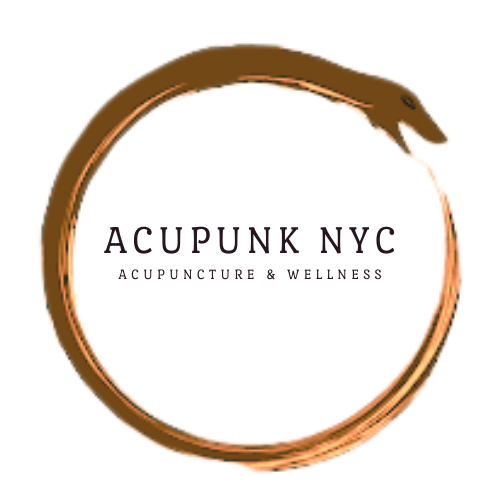Supporting Male Fertility with Acupuncture and Chinese Medicine
When couples struggle to conceive, the focus often falls on the woman’s health. However, male-factor infertility is a contributing factor in nearly 40–50% of cases (Agarwal et al., 2015). Sperm count, motility (movement), and morphology (shape) are all critical to male fertility—and these parameters are highly sensitive to stress, lifestyle, diet, and internal imbalances.
As a licensed acupuncturist, I work with many men who want to improve their fertility naturally. Chinese medicine—which includes acupuncture, herbal therapy, and dietary guidance—offers a holistic, evidence-supported approach to improving sperm quality and overall reproductive health.
Understanding Male Infertility: Motility & Morphology
Two key indicators of male fertility are:
Sperm motility: Refers to how well sperm move. Strong forward motion is essential for reaching and fertilizing the egg.
Sperm morphology: Refers to the shape and structure of sperm. Abnormal morphology may be linked to DNA fragmentation or difficulty penetrating the egg.
Issues with motility and morphology are common in men experiencing subfertility. Conventional medicine often offers limited solutions—mainly lifestyle advice or assisted reproductive technologies (ART)—but acupuncture and Chinese herbal medicine provide natural tools to support these sperm parameters.
Acupuncture for Sperm Health: What the Research Says
Modern research has shown that acupuncture can significantly improve sperm motility, morphology, and concentration.
A 2005 study published in Fertility and Sterility found that men who received acupuncture twice weekly for five weeks had a statistically significant increase in the number and percentage of motile sperm (Pei et al., 2005).
A 2010 randomized controlled trial also observed improvements in sperm morphology and motility in men who received acupuncture, along with decreased DNA fragmentation (Siterman et al., 2010).
How does it work? From a biomedical perspective:
Enhances circulation to the testes, improving nutrient and oxygen delivery
Reduces systemic inflammation and oxidative stress, both of which damage sperm
Balances the hypothalamic-pituitary-gonadal (HPG) axis, regulating testosterone and other key reproductive hormones
Activates the parasympathetic nervous system, counteracting the negative hormonal effects of chronic stress
Chinese Medicine Perspective: Treating the Root
In Traditional Chinese Medicine (TCM), male infertility is rarely viewed as a localized issue. Instead, we look at systemic patterns that may impact sperm development. Some common ones include:
Kidney Jing Deficiency: Kidney “Essence” is considered the foundation of reproductive strength. Deficiency may manifest as low sperm count or poor morphology.
Kidney Yang Deficiency: Presents as fatigue, low libido, and poor sperm motility.
Liver Qi Stagnation: Often related to stress, this can block energy flow to the reproductive organs.
Spleen Qi Deficiency: Leads to poor nutrient assimilation, affecting the body’s ability to produce healthy sperm.
We diagnose these patterns using tongue and pulse analysis, history taking, and symptom observation. Each treatment is tailored, not one-size-fits-all.
Chinese Herbal Medicine for Sperm Health
Herbs have been used for thousands of years in China to support male fertility. Clinical and experimental studies are beginning to confirm what generations have observed:
A 2016 meta-analysis found that Chinese herbal medicine significantly improved sperm motility and morphology when compared to placebo or no treatment (Cai et al., 2016).
Herbs like He Shou Wu, Gou Qi Zi (goji berry), and Yin Yang Huo (horny goat weed) are known for nourishing Kidney Jing and enhancing Yang energy, both of which contribute to better sperm quality.
Herbal formulas are carefully constructed based on your TCM diagnosis. A typical plan may last 3–6 months, corresponding with the sperm regeneration cycle (~74 days).
Lifestyle Medicine: A Critical Piece of the Puzzle
We also work with patients to address external contributors to poor sperm quality:
Nutrition: Antioxidants like Vitamin C, E, zinc, selenium, and CoQ10 help protect sperm from oxidative damage.
Heat: Avoid hot tubs, saunas, or tight underwear—all of which impair spermatogenesis.
Toxins: Reduce exposure to endocrine disruptors (like BPA), alcohol, nicotine, and recreational drugs.
Stress: Chronic stress increases cortisol, which in turn affects testosterone and sperm production. Acupuncture, meditation, and qigong are powerful tools to regulate the nervous system.
Real Results, Naturally
In clinic, I’ve seen men experience significant changes in their semen analysis results after committing to regular acupuncture, herbal medicine, and lifestyle adjustments. Even men preparing for IVF or ICSI benefit: improving sperm quality can increase success rates and reduce the chance of DNA fragmentation-related issues.
Acupuncture and Chinese medicine offer a personalized, non-invasive, and time-tested path to better reproductive health. Whether you're just beginning your fertility journey or preparing for assisted treatment, we can work together to optimize your sperm health naturally.
Pei, J., Strehler, E., Noss, U., Abt, M., Piomboni, P., Gambera, L., & Colpi, G. (2005). Quantitative evaluation of spermatozoa ultrastructure after acupuncture treatment for idiopathic male infertility. Fertility and Sterility, 84(1), 141-147.
Siterman, S., Eltes, F., Wolfson, V., Lederman, H., Bartoov, B. (2010). Effect of acupuncture on sperm parameters of males suffering from subfertility related to low sperm quality. Asian Journal of Andrology, 12(3), 395–398.
Cai, L., Chen, H., Han, Z., Chen, H. (2016). Effect of traditional Chinese medicine on semen quality in men with infertility: A systematic review. Andrologia, 48(6), 835-844.
Agarwal, A., Mulgund, A., Hamada, A., Chyatte, M.R. (2015). A unique view on male infertility around the globe. Reproductive Biology and Endocrinology, 13, 37.
